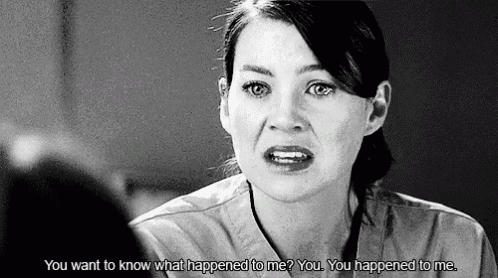
Meredith moved through the world with the precision of a finely tuned machine. Her suits were always impeccably tailored, her dark hair pulled back in a severe, elegant knot, and her pronouncements, whether about structural integrity or market trends, delivered with an unwavering confidence that bordered on glacial. As a senior architect at a prestigious firm, she commanded respect, her designs praised for their innovative functionality and sleek aesthetic. Yet, beneath this polished veneer, a gnawing current of fear swirled: the fear of being seen as less than, of her meticulous work being merely competent, never brilliant, and of her carefully constructed self-worth collapsing under the weight of her deepest, most persistent insecurity – that she was, at her core, an elaborate imitation of true talent.
The scene unfolded in the hushed, almost reverent quiet of the firm’s main conference room, a space of polished mahogany and glass that seemed designed to amplify every whisper of doubt. Meredith stood before the towering scale model of the "Veridian Spire," her magnum opus – a forty-story residential and commercial complex she had poured the last two years of her life into. The air hummed with anticipation. The final design review was not merely a formality; it was a gauntlet. Her peers, some admiring, some quietly envious, were arrayed around the long table. But it was the presence of one man, Arthur Vance, the enigmatic and brutally honest principal partner, that made her palms subtly damp inside her tailored sleeves.
Vance, a legend in the architectural world, strode in late, his piercing blue eyes scanning the room, then settling on the model. He circled it slowly, his silence more potent than any barrage of questions. Meredith felt a familiar tightening in her chest, a premonitory clench that always preceded moments of intense vulnerability. She had prepared meticulously for every conceivable query about load-bearing walls, energy efficiency, and material sourcing. She had diagrams, spreadsheets, and compelling rhetoric ready to deploy. Her fortress of facts was impregnable.
Then, Vance stopped. He didn't point out a design flaw or a budget overrun. He simply leaned in close to the model, his gaze fixed on the intricate filigree of the spire’s crowning feature, a detail Meredith had spent weeks perfecting, believing it to be her signature flourish. "Meredith," he said, his voice quiet but carrying through the stillness, "this is… perfect. Flawless, even."
A fleeting spark of triumph ignited within her, swiftly extinguished by his next words. "But," he continued, straightening up and meeting her eyes, "where is Meredith in it? Where is the raw edge, the inspired madness, the beautiful imperfection that distinguishes creation from mere construction?" He gestured vaguely at the model. "It's… anodyne. It feels like it was designed by an algorithm trained on every successful building of the last fifty years. Technically masterful, but utterly devoid of soul."
The words weren't a critique; they were a surgical incision. They didn’t target her work’s competence, but its very essence, striking precisely at the core of her deepest fear: that she lacked true originality. It was the whisper she’d suppressed since childhood, the one that told her she was merely good at mimicking, at applying learned rules, never at truly inventing. Her father, an academic who valued precision above all else, had unwittingly instilled this by praising her analytical mind while dismissing her more artistic inclinations as "frivolous." "Practicality, Meredith," he’d always advised, "is the highest form of genius." She had built her career on that mantra, constructing a life of tangible achievements, precisely because she doubted her capacity for the intangible.
In that moment, the sterile conference room seemed to melt away. Meredith’s meticulously ordered internal world shattered. She wasn't just hearing Vance; she was hearing her father’s voice, a critical art teacher’s dismissive sigh, the faint, internal echo of every time she’d felt a spark of unconventional creativity only to smother it with the blanket of "what works." Her perfectly composed facade wavered. Her hands, usually so steady, felt suddenly clumsy, numb. The air in the room grew thick, pressing in on her, and she fought the overwhelming urge to flee, to escape the blinding spotlight of her own inadequacy.
She managed to stammer a few technical defenses, her voice thin and reedy, a stark contrast to her usual confident timbre. Vance listened patiently, a flicker of something unreadable – pity? understanding? – in his eyes. He didn’t press further. The meeting continued, but for Meredith, the spell was broken. She saw the Veridian Spire not as her triumph, but as a glittering monument to her deepest insecurity: a testament to competence, yes, but devoid of the unique, messy, vulnerable mark of genuine artistic expression.
The scene didn't destroy Meredith’s career, nor did it cause her to abandon architecture. But it irrevocably unpacked her deepest insecurities, laying them bare in the harsh light of professional truth. Vance’s scalpel-sharp words had pierced her armor of precision, forcing her to confront the gnawing suspicion that her meticulousness was less a strength and more a shield against the fear of her own creative void. It was a painful, humiliating revelation, but also, paradoxically, a liberation. For only in acknowledging the profound emptiness where her unique artistic voice should have been could Meredith even begin the daunting, terrifying, and ultimately essential work of finding it. The perfectly constructed walls of her life had to crack before the possibility of truly building her authentic self could emerge.